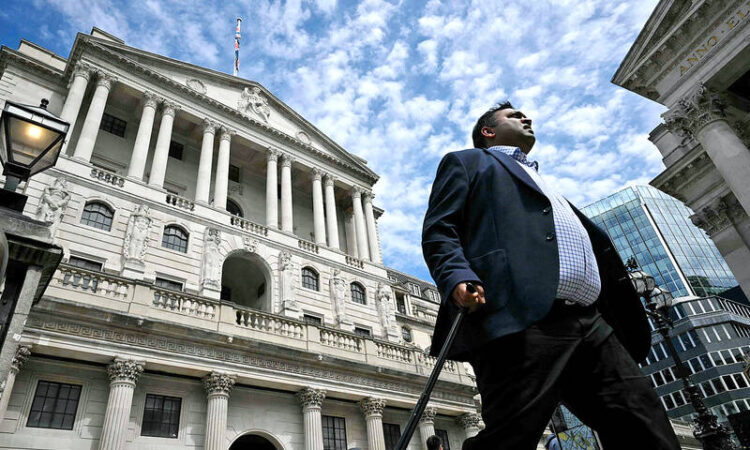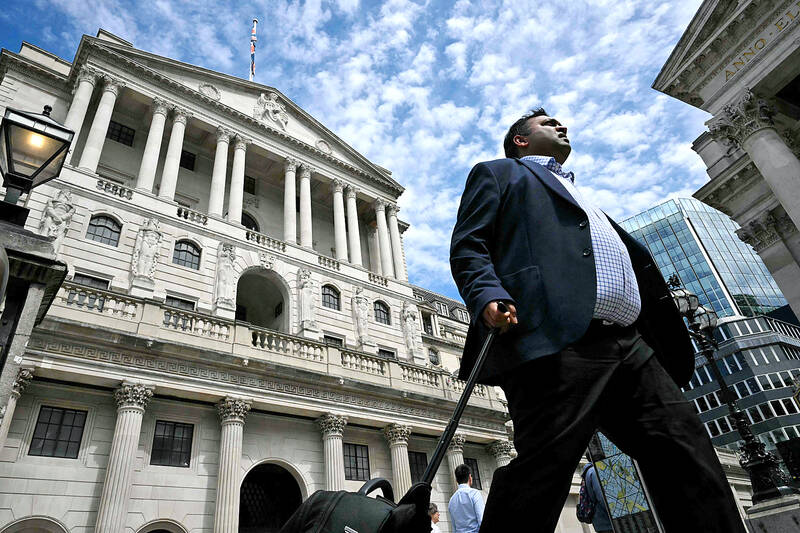
The Bank of England (BoE) yesterday kept its key interest rate at a 16-year high despite slowing UK inflation, opting against a cut before Britain’s general election next month.
While annual inflation slowed last month to a near three-year low of 2.0 percent, matching the central bank’s target, the BoE had been expected to keep the rate at 5.25 percent ahead of the national vote on July 4.
“It’s good news that inflation has returned to… target,” Bank of England Governor Andrew Bailey said following the regular policy meeting.

Photo: Ben Stansall, AFP
“We need to be sure that inflation will stay low and that’s why we’ve decided to hold rates at 5.25 percent for now.”
Analysts said there was strong chance that the BoE would cut at its next meeting in August following a series of hikes that have help bring down UK inflation from the highest level in more than four decades.
Shortly before the latest BoE announcement, the Swiss National Bank unveiled a second straight interest-rate cut, after becoming in March the first Western central bank to slash borrowing costs that had been raised to battle inflation. Meanwhile, Norway ‘s central bank kept its key policy interest rate on hold at a 16-year high of 4.50 percent yesterday.
Analysts had widely expected no change to the BoE rate owing to UK services inflation remaining well above two percent and with energy bills set to rise towards the end of the year.
Seven members of the bank’s Monetary Policy Committee (MPC) voted to hold the rate steady, while two wanted a cut — the same outcome as the previous meeting last month.
The BoE noted that for some members who voted for no change this time around, the decision was “finely balanced.” The bank also stressed that its announcement was in no way influenced by politics.
The MPC “noted that the timing of the general election… was not relevant to its decision,” minutes of the meeting showed.
Elevated interest rates have worsened a UK cost-of-living squeeze because they increase borrowing repayments, thereby cutting disposable incomes and crimping economic activity.
GDP stagnated in April after the country exited recession in the first quarter of the year, as businesses and households weathered the cost-of-living crunch.
BoE policy on rates mirrors that of the US Federal Reserve, which says it is not yet ready to cut. It contrasts, however, with the European Central Bank, which has started to reduce borrowing costs.
Comments will be moderated. Keep comments relevant to the article. Remarks containing abusive and obscene language, personal attacks of any kind or promotion will be removed and the user banned. Final decision will be at the discretion of the Taipei Times.





